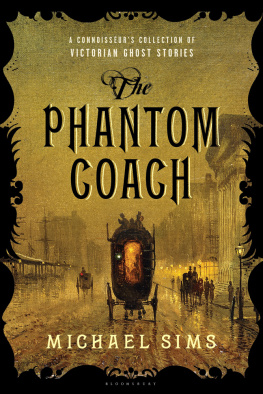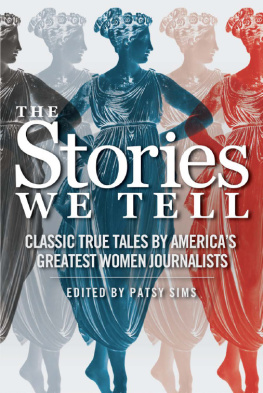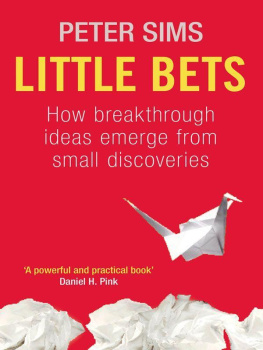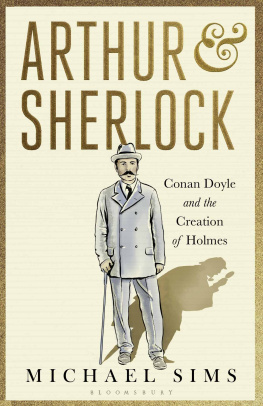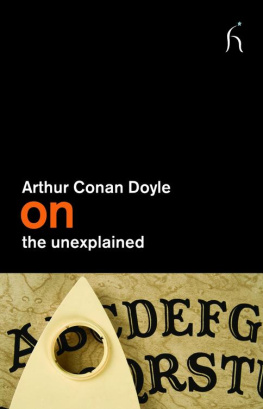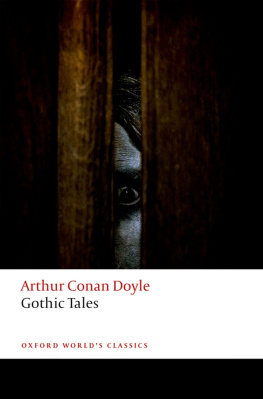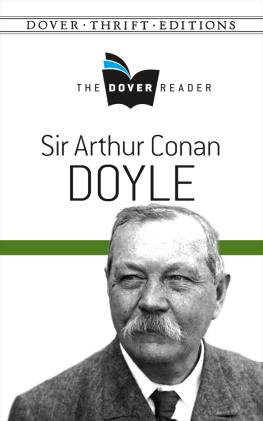First and foremost, as always, I thank my wife, Laura Sloan Patterson, for too many kindnesses and forms of help to be enumerated here. Im pleased to add our energetic son, Vance, to the list of people to thank, because at the age of one year he reminds me daily that curiosity is a sensual pleasure. I welcome the opportunity to again applaud my splendid agent, Heide Lange, who has been advising and guarding my career since the last years of a previous millennium, and her cordial assistants, Stephanie Delman and Rachel Mosner. Thanks to my intrepid and patient editor and friend, George Gibson, and the rest of the crew at Bloomsbury USA (Carrie Majer, Lea Beresford, Rob Galloway, and Nate Knaebel) and Bloomsbury UK (Alexandra Pringle, Helen Garnons-Williams, Alexa von Hirschberg, and Madeleine Feeny).
I incorporated into this books introduction a couple of paragraphs from my essay All the Dead Are Vampires, which appeared in the Chronicle Review on June 13, 2010. Thanks to Jean Tamarin, the excellent editor who commissioned the essay and granted me permission to cannibalize my own work. The line from Virgil that I quote as an epigraph to the introduction was translated by Robert Fagles; the line from Pliny the Elder was translated by John F. Healy.
Numerous friends and scholarsincluding Gwen Enstam, Duncan Jones, Deanna Larson, Fernanda Moore, Jennifer Ouellette, Maria Tatar, and no doubt many others whose names I forgot to note at the timesuggested stories. Jon Erickson was essential, as usual, as was Karissa Kilgore. Thanks to Jerry Felton, Robert Majcher, John Spurlock, and Stephanie Wilson. My thanks to numerous scholars who have written on the topic of supernatural fiction; many of their books are cited in the bibliography. Perpetual gratitude to the Greensburg Hempfield Area Library, especially Cesare Muccari, Diane Ciabattoni, and book detective Linda Matey and her excellent crew.
18421914?
Bitter Bierce, they called him, for his gloomy view of humanity. In one portrait, he leans against a mantel beside a skull whose stare cant match his own thoughtful frown. Skepticism and pessimism have seldom been more entertaining than in Bierces brilliant satirical volume The Devils Dictionary . Its hundreds of entries grew out of his newspaper columns and first appeared in 1906 as The Cynics Word Book . Consider his definition of infidel : In New York, one who does not believe in the Christian religion; in Constantinople, one who does. And, as quoted earlier in The Phantom Coach , there is Bierces fine definition of a ghost: The outward and visible sign of an inward fear.
Born in Ohio, Ambrose Gwinnett Bierce spent his adolescence in Indiana and his early adulthood managing a mine in the Dakotas. He served with distinction in the Civil War, fought at both Kennesaw Mountain and Shiloh, rescued a wounded comrade under fire, and suffered a severe head wound that kept him out of combat for only a few months before he returned. He edited various newspapers and magazines. He wrote for William Randolph Hearsts San Francisco Examiner , then continued the association from Washington, DC.
Not surprisingly, the man who described a novel as a short story padded wrote elegant, economical stories. Probably his best known are Chickamauga and An Occurrence at Owl Creek Bridge, either of which if published now would be called postmodern. A year after Owl Creek, in the December 19, 1891, issue of Wave, came another enduring story, a creepy oedipal vampire tale called The Death of Halpin Frayser. Two years later he reprinted all three in a collection with the perfect title Can Such Things Be? He also wrote poetry and essays.
In October 1913, at the age of seventy-one, Bierce decided to visit Mexico to learn more about its revolution and to interview the outlaw and revolutionary leader Pancho Villa. Along the way he visited the sites of his war experience. Traveling via Chattanooga and New Orleans, he crossed over the Rio Bravo into Ciudad Jurez in late November. The day after Christmas 1913, Bierce wrote to his secretary from Chihuahua, stating his plan to travel to where Pancho Villa was supposedly planning to attack troops. Bierce was never heard from again. His disappearance without a trace has piqued the imagination of other writers ever since. Bierce appears in numerous fantasy and science fiction stories, as well as in a series of detective novels. Even Mexican novelist Carlos Fuentes couldnt resist the mystique; Bierce is a central character in his 1985 novel The Old Gringo . One of Gregory Pecks last roles was playing Bierce in the 1989 film version.
The Moonlit Road was first published in the January 1907 issue of Cosmopolitan .
18311892
For a quarter century beginning around 1860, most of the stylish and innovative writers of ghost stories were women. Filling the magazines with tales of spirits were Mary Elizabeth Braddon, author of the scandalous sensation novel Lady Audleys Secret ; Margaret Oliphant, whose story The Library Window appears in this volume; the prolific and influential Charlotte Riddell (who published as Mrs. J. H. Riddell), author of the ghost story collection Weird Stories and at least five novels with a supernatural theme; and Rhoda Broughton, author of Twilight Stories and many other books.
None surpassed Amelia Edwards, author of the quintessential Victorian ghost story, The Phantom Coach. Born Amelia Ann Blandford in London in 1831 to an English father and an Irish mother, precocious young Amelia began publishing stories and poems during her childhood. She wrote for many publications, appearing often in Dickenss Household Words and All the Year Round . Her popular novels included My Brothers Wife and Lord Brackenbury , as well as story collections such as Monsieur Maurice and Other Tales . When she died in 1892, an obituary in the Illustrated London News began with these words: In Miss Amelia B. Edwards, who died on Good Friday, aged sixty, an Englishwoman of great literary power and extraordinary versatility has passed away.
After touring Egypt in the mid-1870s, Edwards became obsessed with the region. Her passion for its landscape, history, and people can be seen in her vivid 1890 account A Thousand Miles up the Nile , which featured her own evocative drawings of everything from tomb hieroglyphics to the Abu Simbel temple cut from desert rock. She founded an Egyptian Exploration Fund and left a legacy that founded the first chair of Egyptology in England, the Edwards Chair at University College London, which was first held by her protg, the pioneer archaeologist Flinders Petrie. She even wrote the entry on mummies for the 1884 edition of the Encyclopaedia Britannica .
In the Christmas 1864 issue of Charles Dickenss weekly All the Year Round , the following story appeared under the title Another Past Lodger Relates His Own Ghost Story. It began life with this curious title because it was part of a Christmas Extra issue centered around a boardinghouse, under the blanket title Mrs. Lirripers Legacy. (For background on this kind of theme issue, see the introduction to Dickenss story The Trial for Murder. Dickenss own contributions to this issuecomprising the title story and Mrs. Lirripers Lodgingsare a small masterpiece. Mrs. Lirriper herself, a surprisingly modern-sounding stream-of-consciousness narrator, has been compared toand may have inspiredMrs. Bloom in Joyces Ulysses .) Early on Edwardss story was reprinted occasionally as The North Mail. For many years, however, it has been known by its present title, which seems so evocative of the Victorian ghost story that it was promoted to the title of this anthology.
In 1880, the year he turned twenty-one, Arthur Conan Doyle was nearing the end of his medical courses in Edinburgh. He was studying hard for an exam when a fellow student named Currie came to his room and asked, Would you care to start next week for a whaling cruise? Youll be surgeon, two pound ten a month and three shillings a ton oil money.
Next page
